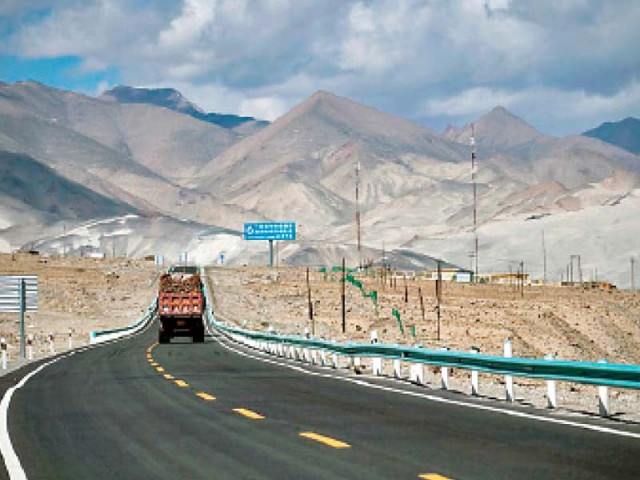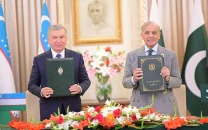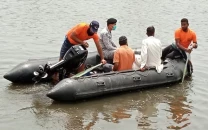Foreign media intentionally smearing Pak-China cooperation: report
Article by The Guardian was 'full of misleading, malicious and misrepresented information'

Reports by certain foreign media organisations were deliberately propagating fake and untrue news about protests against Belt and Road Initiative (BRI) projects in Gwadar, Pakistan, according to an investigation by Global Times.
The report stated that an article by British publication The Guardian was "full of misleading, malicious and misrepresented information".
“Protests have erupted in Pakistan’s port city Gwadar against a severe shortage of water and electricity and threats to livelihoods, part of a growing backlash against China’s multibillion-dollar belt and road projects in the country,” The Guardian had stated in the report.
However, the chief of the Municipal Committee of Gwadar said in a statement that shortages of water and electricity in Gwadar "are not the responsibility of the Chinese at all," instead; they are due to historical reasons and are still a problem.
Read More: CPEC SEZs open for third countries as well
Global Times also refuted another report published by Indian news agency ANI which said the protests were staged against "illegal fishing by Chinese trawlers".
China Overseas Ports Holding (COPHC) Pakistan, the enterprise that operates the Gwadar Port, also refuted reports of the protests saying that the reports were ‘not true'.
The protests have been going on for a long time, Tahir Murtaza, a local reporter who has been following the situation on the ground for a long time, told Global Times.
“The issues are about the lack of electricity and water but China is not related. However, some media outlets deliberately linked those protests with fishing by Chinese trawlers,” Murtaza said.
The reporter further added that Gwadar's electricity supply is not connected with the Pakistani electricity grid and relies on electricity imported from Iran, which has also faced a supply shortage recently.
"Pakistan has talked with Iran about providing extra energy to meet local demand but local people are demanding an uninterrupted supply of electricity. The same is the case with water," he said, noting that "China is not the reason for the lack of electricity and water" there.
Chinese companies have managed to supply 100,000 to 200,000 gallons of water to the local community using their own water plant, according to the statement by the Municipal Committee of Gwadar.
The Guardian further reported that the protests are part of a growing discontent with China’s presence in Gwadar and that the attack on the bus that killed Chinese workers in July was a "sign of Pakistani's growing resentment against the BRI".
Refuting the claims, the municipal committee said the people of Gwadar were "grateful for the assistance provided by the Chinese government and companies," as the projects had boosted employment for the local community.
“Most local Pakistanis support the construction of CPEC and believe that cooperation between the two countries is good for Pakistan,” Li Chao, a Chinese business insider in Pakistan, told Global Times.
“There were shortages of electricity for six hours a day even in Islamabad in 2016, but with the energy projects under the CPEC coming into operation, electricity supply in the capital area has been relatively sufficient since 2017.”



















COMMENTS
Comments are moderated and generally will be posted if they are on-topic and not abusive.
For more information, please see our Comments FAQ